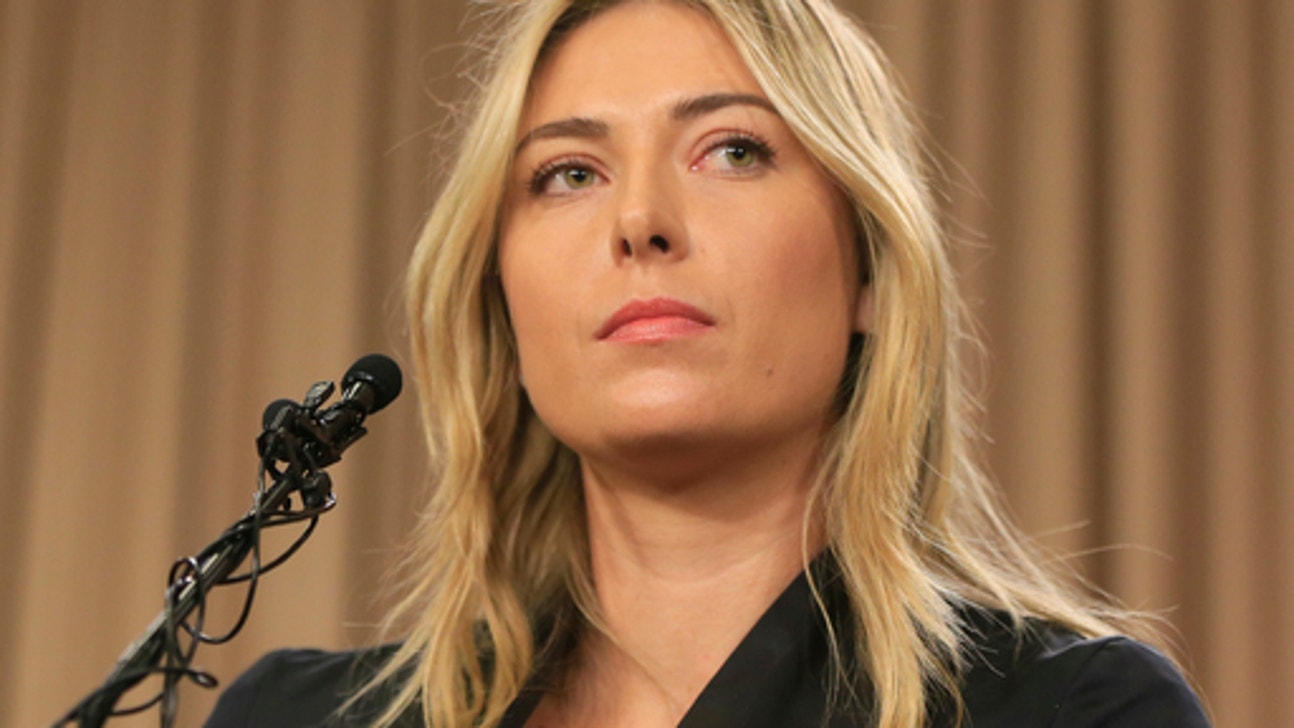
AP Interview: ITF's Haggerty: 'Tennis is a clean sport'

LONDON (AP) In his first six months as president of the International Tennis Federation, David Haggerty has had anything but a quiet time settling into the new job. Not with allegations of match-fixing and corruption, Maria Sharapova's doping case, and disputes over prize money buffeting the sport.
''Yes, there were some things that did come up that kind of took me away from the general mission,'' Haggerty said. ''But when there is controversy, there is opportunity.''
Haggerty, a former president of the U.S. Tennis Association, was elected in September to succeed Italy's Francesco Ricci Bitti as leader of the sport's world governing body. The only American head of an international Olympic sports federation, Haggerty has remained largely behind the scenes amid the high-profile controversies.
In an exclusive, wide-ranging interview with The Associated Press, Haggerty said he was determined to protect the integrity of tennis. He hopes to enhance systems for preventing and investigating match-fixing, strengthen the drug-testing program, and take action against any players caught using meldonium, the newly banned substance that produced Sharapova's positive test.
''We want to make sure that every single consumer and spectator believes that tennis is a clean sport, because it is,'' Haggerty said.
Corruption came to the forefront during the Australian Open in January when the BBC and BuzzFeed alleged that tennis authorities suppressed evidence of match-fixing and failed to thoroughly investigate possible fixing involving 16 players ranked in the top 50 over the past decade. That led tennis' governing bodies to launch an independent review of the sport's anti-corruption group, the Tennis Integrity Unit, a process expected to take at least a year.
''When match-fixing raises its ugly head, we feel as though it's a chance to be able to talk about things that we are doing and have done,'' Haggerty said. ''I can assure you that we have a Tennis Integrity Unit that investigates every single suspicious alert that happens until we have evidence to prosecute or find out that there really isn't an issue with what was found.'
''We have to put it all in perspective. You're looking at 246 reports of unusual betting patterns last year out of 120,000 tennis matches. The percentage is small. That being said, we have zero tolerance. One is too many. But those unusual patterns don't mean anything happened. We don't have the evidence.''
Haggerty said the ITF was working to improve education among junior players about the dangers of match-fixing. The Tennis Integrity Unit has added extra staff, including an analyst and investigator. And the ITF itself has created its own independent integrity department.
''There's always things you can do better,'' Haggerty said.
Sharapova announced this month that she tested positive for meldonium at the Australian Open. The drug, developed in Latvia for treatment of heart conditions, was put on the World Anti-Doping Agency's banned list on Jan. 1. Sharapova admitted she failed to notice the drug became prohibited. The Russian said she took the drug over a 10-year period for various medical issues, not for enhancing performance.
Sharapova is provisionally suspended, pending a hearing by an independent tribunal. She could face a long ban.
''We think it shows that tennis holds no player above the cleanliness of the sport,'' Haggerty said. ''If any player has this in their system, it will come out, and we will take the appropriate action.''
Haggerty said he does not consider meldonium to be ''overly prevalent'' in tennis. He criticized former WADA president Dick Pound for saying tennis authorities knew the drug was being used in the sport and brought it to WADA's attention.
''Frankly, it's a bit frustrating when so-called experts are out there talking about things that are not factually correct,'' Haggerty said of Pound. ''In this case, you have a former president of WADA talking about something that actually had no merit and was inaccurate.''
Tennis has often been criticized for the extent of its anti-doping program. Some top players, notably Roger Federer, have complained they are not being tested enough.
''It goes from top to bottom, so they may not be tested all the time but there is a rigorous process that does happen, in top players down to low-ranked players, in competition and out of competition,'' Haggerty said.
The ITF is in the final year of a four-year anti-doping program in which ''we're pretty much doubling'' the number of tests, with the ratio of urine to blood checks now at 60-40, he said. ITF statistics show a total of 4,433 samples were tested in 2015, including 1,658 out-of-competition blood controls.
''It's not necessarily quantity, it's the quality of what you do,'' Haggerty said.
The ITF leader reiterated support for equal prize money, following the comments by Indian Wells tournament director Raymond Moore that women's tennis ''rides on the coattails'' of the men and that female players should ''get down on (their) knees'' and thank the top male stars. Moore later apologized and resigned. Top-ranked Novak Djokovic suggested men deserved higher prize money, though he has since backtracked.
Noting that the U.S. Open was the first Grand Slam to offer equal prize money more than 30 years ago, Haggerty said: ''We believe in gender equality. It's very important. The women bring great entertainment, great quality, and the men do, too. They're both fairly compensated for what they do.''
Haggerty voiced concern about delays to the tennis venue in Rio de Janeiro for the Olympics in August. Lights have yet to be installed (the tournament has day and night sessions) and the hard courts still need to be resurfaced. The construction contract for the venue - in the heart of the Olympic Park - was rescinded in January and a new company put in charge.
''There are some things that are a little bit behind schedule,'' Haggerty said. ''I'm going to Rio in five weeks, not that I have any magic formula, but I'd like to see for myself and to support the team.''
One of Haggerty's priorities is reshaping the Davis Cup and Fed Cup. The ITF board last week decided to look into the possibility of having neutral venues for the finals or a final four format for the semifinals and finals. Increasing the World Group from eight to 16 teams in Fed Cup is also under consideration.
Proposals will be put to the next ITF general assembly in September 2017, with any changes coming into effect at the earliest in 2018 and more likely in 2019.
Meanwhile, Haggerty continues to get his feet wet in Olympic circles. His predecessor, Ricci Bitti, was a big player as head of the Association of Summer Olympic International Federations.
''Being the rookie and the new kid on the block, I have many, many things to learn,'' Haggerty said.
--
Stephen Wilson on Twitter: https://twitter.com/stevewilsonap
